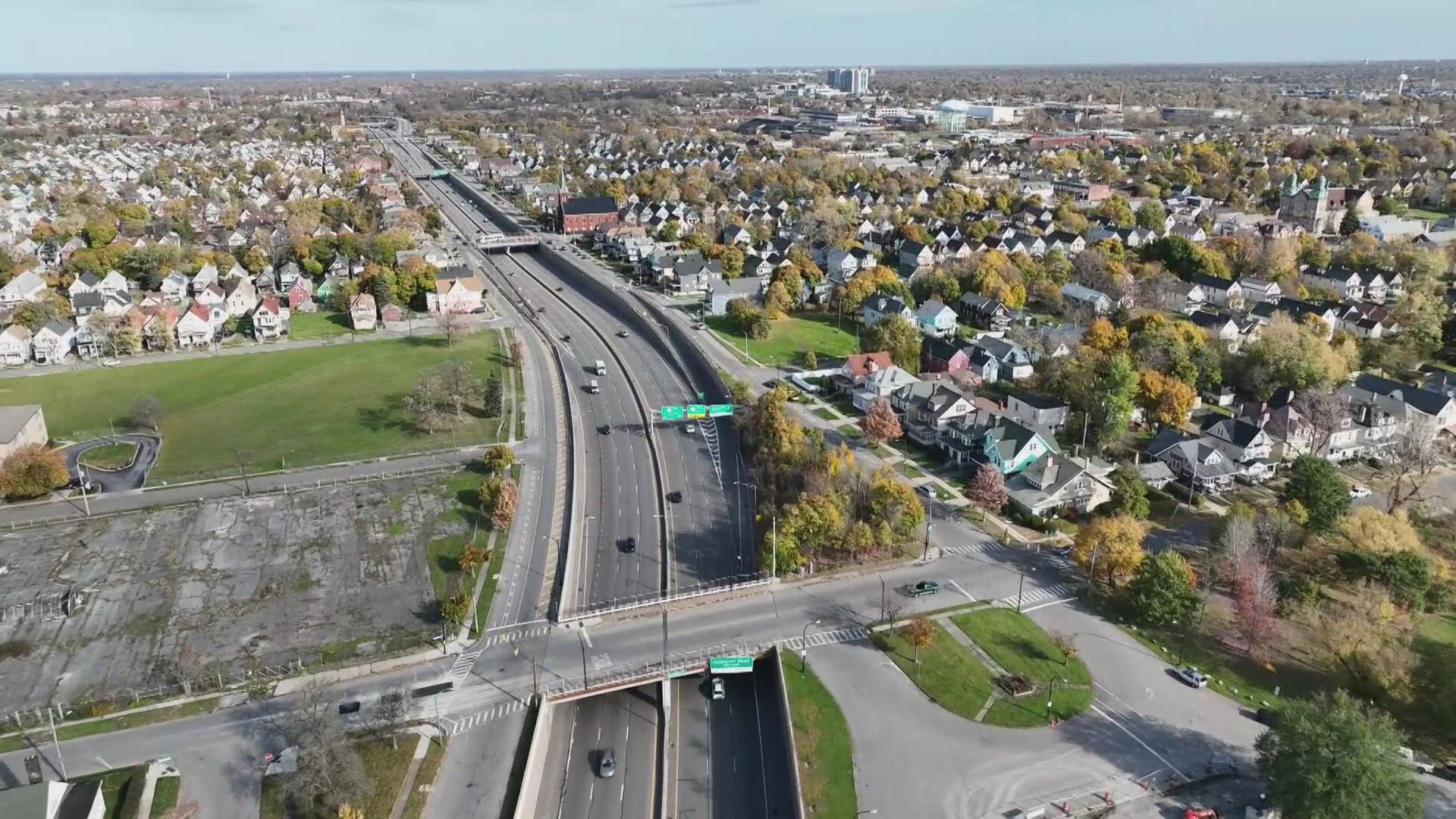BUFFALO, N.Y. — According to sources within the New York State Department of Transportation and industry sources with direct knowledge of the project, the Kensington Expressway project has ballooned in cost to $1.5 billion.
The original projected cost of the project was just shy of $1 billion when it was first proposed.
Right now, according to the sources, the state does not have a solid plan as to how they would pay for the projected overruns.
While there has been a very public legal battle between those in the community who want the DOT to do something else with the Kensington Expressway, the legal proceedings have only caused a physical delay in the project, and not a significant financial one.
"I would argue it's almost exclusively inflation," said Mike Elmendorf, the president and CEO of the Associated General Contractors of New York State. "In this environment, time is money, both because inflation marches on and time also exacerbates the significant workforce shortages."
2 On Your Side reached out to the NYSDOT for comment. It did not confirm or deny the cost overruns.
In a statement the DOT said, "This is a significant project that we remain committed to, and we have no further comment at this time due to related litigation."
Industry groups and contractors are growing increasingly concerned that mega projects like the Kensington Expressway are taking away from core mission of the NYSDOT and impacting the overall bridge and pavement quality in the region and state.
"We need to do mega projects," Elmendorf said. "But you can't do those and at the same time, be neglecting the nuts and bolts and far less exciting projects that really are what drive your conditions."
According to NYSDOT data that is not widely available to the public and only submitted to the state legislature, between 2017 and 2023 the overall percentage of DOT maintained roads that were rated "good/excellent" dropped by 20%.
In 2017, 80% of the pavement in NYSDOT Region 5, which makes up Western New York, were rated good/excellent.
In 2018, that number dropped to 58%. By 2019, only half of the pavement in Region 5 was considered good/excellent. By 2023, that figure had inched back up to 60%.
Industry leaders say the focus on large projects like the Kensington, or I-81 in Syracuse, by the DOT is having a direct impact on the overall quality of bridges and roads in Western New York and the state.
"They've taken so much money and energy from the agency to try to get these projects out, and the studies that they're spending all their time and efforts on the rest of the system doesn't get the attention it should get," Gary Hill said.
Hill is the president of Union Concrete Construction Corp. in West Seneca with over 45 years experience in the industry. Hill and his company were awarded the Best Street bridge project, which was added to the overall Kensington Expressway project at some point.
The reconstruction of that bridge is on hold while the legal battle over the Kensington project is sorted out in court.
"If the Federal dollars are going to a big project like that, you're not going to have enough for the other agencies and the other projects," Hill said. "So cost-wise or funding-wise, it has a big effect."
The Kensington Expressway project isn't the only NYSDOT mega project facing overruns. The I-81 project is facing more than $1B in unfunded overruns. Additionally the Route 17 to I-86 project is facing a $500 million unfunded overrun as well.
"They have gotten no additional funding to cover that shortfall, despite the efforts in particular of the state the legislature," Elmendorf said.
In 2022, Gov. Kathy Hochul proposed a $32.8 billion, five-year NYSDOT capital funding plan that was approved by the legislature, the largest multiyear transportation plan in state history.
However, according to those in the industry, the state didn't put any additional transportation spending in future budges to make sure the capital plan would be protected from inflation related overruns.
"The impact of inflation and cost escalation has better than erased the increase that the program saw," Elmendorf said.
Regarding the impact of the inflation on the capital plan and overall bridge and pavement conditions, a spokesperson for the NYSDOT said:
“New York State has one the most aggressive road and bridge renewal programs in the United States and is investing more in the modernization of its transportation infrastructure than at any other point in the state’s history. New York is currently in the middle of a five-year capital plan adopted in 2022, which at $33 billion is the largest such plan of its kind in state history and includes more than $6.1 billion in direct support for local governments to renew and modernize bridges and pavements.”

